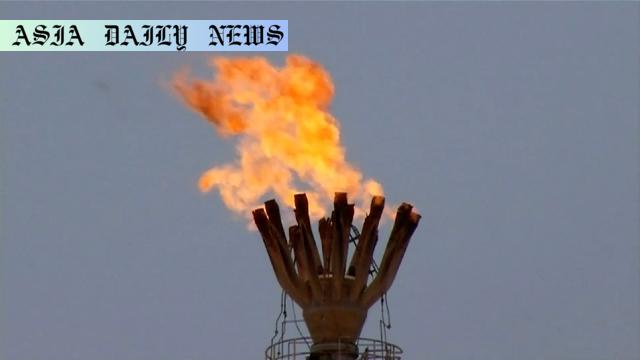Ceasefire leads to a sharp fall in crude oil prices and strengthens the Nikkei index.
US President Trump announces a ceasefire between Israel and Iran.
Dubai crude futures drop by 12.2% post the ceasefire.
Nikkei 225 sees a 1.1% surge as investors gain confidence.
The US dollar loses ground against the yen in response to eased tensions.

Introduction: Ceasefire Announcement and Its Market Impact
US President Donald Trump’s announcement of a ceasefire between Israel and Iran created ripples across global markets on Tuesday morning, affecting commodities, currencies, and equities. This unexpected development brought relief to fears of escalating conflicts in the Middle East, significantly soothing investor concerns and paving the way for economic repercussions worldwide.
Crude Oil Plunges Amid Eased Supply Concerns
In the aftermath of the ceasefire, Dubai crude oil futures experienced a steep decline in Tokyo markets. November delivery futures closed the trading session down by a staggering 12.2% to 57,970 yen per kiloliter, equating to roughly 400 dollars. This marked an abrupt reversal from recent price surges, which were driven by widespread speculation that the Israel-Iran conflict could severely disrupt oil supplies from the region. With this decline, market participants appeared to embrace the implications of a reduced likelihood of supply chain interruptions.
Currency Market Reaction: Dollar Loses Ground
The currency markets also reacted strongly to the ceasefire news. The US dollar, traditionally perceived as a safe haven during global crises, weakened against the Japanese yen. The greenback, which had briefly risen to the 148-yen level following the US attack on Iranian nuclear facilities, dropped back to the 145 mark. This indicates the extent to which geopolitical tensions influence the valuation of global currencies, with traders adjusting their positions in response to changing risks.
Nikkei 225’s Surge Driven by Investor Confidence
Japan’s premier stock index, the Nikkei 225, welcomed the ceasefire news with a notable gain of 1.1% to close at 38,790. This rally was attributed to a collective wave of optimism among investors who issued buy orders for a diverse array of equities. With conflict concerns temporarily alleviated, market participants redirected their focus towards economic fundamentals and corporate performance.
Global Implications of the Ceasefire
This sudden easing of tensions in the Middle East serves as a potent reminder of the interconnected nature of geopolitics and financial markets. Energy prices are invariably tied to regional stability, and even a brief flare of conflict can destabilize global supply dynamics. The ceasefire’s ripple effect underscores the value of diplomacy in ensuring economic stability on a global scale.
Conclusion: A Stabilizing Moment for Global Markets
While the ceasefire announcement brought temporary relief to various markets, its lasting ramifications depend on the durability of peace between Israel and Iran. For now, stakeholders across oil, currency, and equity markets appear to have welcomed this development. However, the situation serves as a cautionary tale, emphasizing the profound impact geopolitical escalations can exert on economic stability.



Commentary
The Ceasefire Announcement: A Welcome Relief
The announcement of a ceasefire between Israel and Iran is undeniably a momentous development for the global economy and geopolitical landscape. The Middle East has long been a critical fulcrum of energy security, and any tensions in the region invariably exert profound effects on global markets. President Trump’s declaration has decisively altered investor sentiment, as reflected in the sharp decline in oil futures and the rally in major equity indices like the Nikkei 225.
Investor Reactions Across Different Markets
It is fascinating to observe the varying reactions across asset classes in response to the ceasefire news. The steep decline in crude oil prices indicates that market players expect a stabilization in supply routes previously perceived to be at risk. Simultaneously, the weakening of the US dollar against the yen reflects a shift in the risk appetite of investors, who appear to be seeking a more diversified exposure now that the perceived level of geopolitical turmoil has diminished.
What Lies Ahead for Geopolitics and the Global Economy
While this ceasefire offers a welcome respite, the global community must remain cautiously optimistic. The Middle East remains a volatile region with deeply entrenched political and ideological differences that can reignite tension at any moment. In the broader context, the situation underlines the necessity for nations to pursue diplomatic solutions actively and collaboratively in order to safeguard both geopolitical stability and economic prosperity.
Conclusion: Diplomacy as a Key Economic Driver
As history has consistently demonstrated, peace and diplomacy are not just moral imperatives but also drivers of economic performance. This recent ceasefire underscores the mutual gains of stability for all market participants—from small-scale investors to multinational corporations. By learning from such moments, policymakers and stakeholders can lay the groundwork for a more stable and cooperative future.